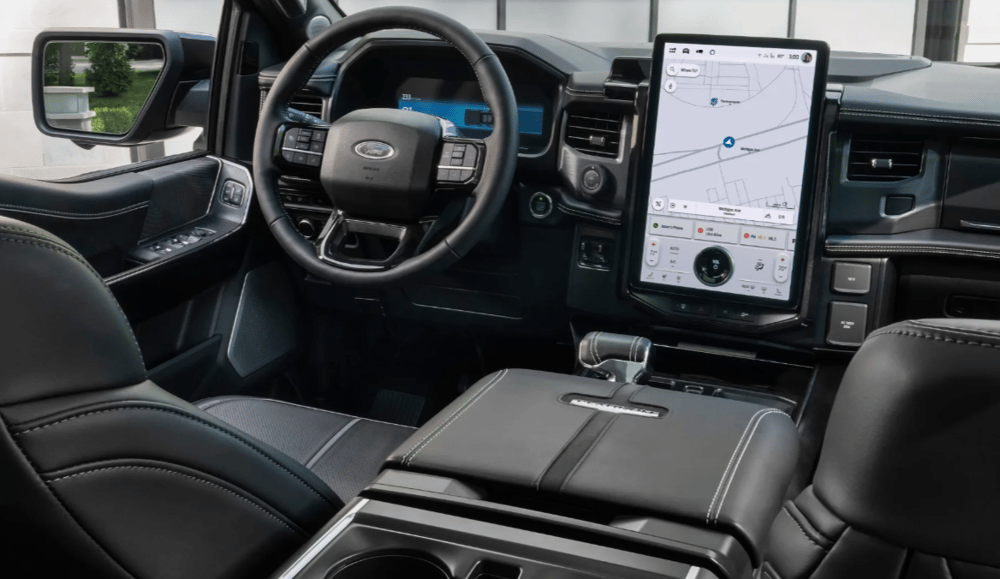Ford Recalls 29,501 F-150 Lightning EVs in U.S. Over Steering Control Risk
Ford Motor Co. $F has initiated a recall of 29,501 units of its 2024–2025 F-150 Lightning BEV (Battery Electric Vehicle) in the United States. According to a notice published Saturday by the National Highway Traffic Safety Administration (NHTSA), the recall is linked to a potential steering control arm disconnection issue, which could cause loss of steering and significantly increase the risk of a crash.
This recall marks a critical quality assurance challenge for Ford as it aggressively expands its presence in the electric vehicle (EV) market. The F-150 Lightning, a flagship model in Ford’s electrification strategy, has been seen as a cornerstone of the company’s transition away from internal combustion engines. The safety alert now raises fresh concerns about production reliability and regulatory compliance in a rapidly evolving automotive landscape.
Impact of Steering Linkage Defect and Market Implications
The identified fault involves the potential detachment of the steering control arm due to insufficient torque in the steering bolt assembly. Such a failure may result in a sudden and unexpected loss of vehicle control, posing a serious hazard to both drivers and other road users.
Although no injuries or fatalities have been reported to date, the scale of the recall reflects the potential severity of the issue. It also places further pressure on Ford’s quality control systems, especially in the EV segment where consumer confidence is still forming.
Ford has already notified dealers and plans to begin customer outreach shortly. The company will inspect and, if necessary, retorque or replace the affected components at no cost to owners. While recalls are a common occurrence in the auto industry, safety-related defects in high-profile EV models can undermine public trust and investor sentiment.

Ford F-150 Lightning Recall
Affected Units: 29,501 F-150 Lightning BEVs (2024–2025 model years)
Issue: Possible disconnection of the steering control arm
Risk: Potential loss of steering, heightened accident risk
Reported Incidents: No injuries or crashes confirmed as of announcement
Remedy: Inspection and retorquing or replacement of steering assembly components
Market Reaction and Industry Context
The recall comes amid increasing scrutiny of EV manufacturing standards as automakers race to capture market share in a sector characterized by technological complexity and evolving regulatory frameworks.
Ford shares may experience volatility in the near term as investors assess the potential reputational and financial impact of the recall. While the short-term cost of the campaign is unlikely to be material for a company of Ford’s scale, the long-term brand equity implications in the EV space are more significant.
Automotive analysts note that this incident could sharpen regulatory oversight on EV quality and safety standards, especially for flagship models like the F-150 Lightning. The recall also arrives at a time when Ford is under competitive pressure from rivals such as Tesla $TSLA, Rivian $RIVN, and General Motors $GM, all vying for leadership in electric pickup trucks and utility vehicles.

Strategic and Market Impacts
Safety Concerns: The risk of steering failure places renewed attention on Ford’s internal QC mechanisms.
Brand Perception: Reliability of EVs, particularly high-profile models, is critical to maintaining customer trust.
Regulatory Implications: Could result in tighter future oversight from agencies like NHTSA.
Investor Impact: Potential short-term pressure on Ford’s stock amid reputational risks.
Industry Benchmark: Highlights broader EV sector challenges in scaling production without compromising safety.
Ford Recall Underscores Challenges in EV Transition
The recall of nearly 30,000 F-150 Lightning EVs underscores the operational and reputational risks automakers face as they transition to electric mobility. While Ford’s proactive response and transparent cooperation with NHTSA may help limit immediate fallout, the event reinforces the critical importance of robust safety validation protocols in EV development.
This development serves as a reminder that innovation in vehicle electrification must be matched by excellence in execution and quality assurance. As competition intensifies and regulatory scrutiny deepens, automakers must navigate a narrow path between technological ambition and customer safety to succeed in the next era of transportation.















Comments